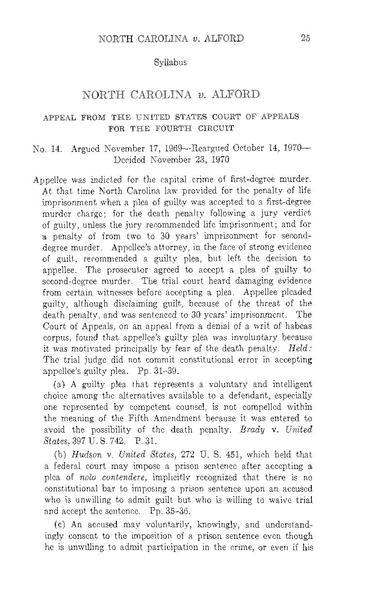
On November 23, 1970, the U.S. Supreme Court decided the North Carolina v. Alford case. The court ruled that a defendant could plead guilty to a crime while still maintaining his innocence. This type of plea is now commonly called an Alford plea, after the defendant in the proceedings.
The litigation began in Forsyth County. Henry Alford was indicted for first-degree murder in 1963. Though he maintained his innocence, Alford ultimately pleaded guilty to second-degree murder on the advice of his attorney who told that him that since the prosecutor had a fairly substantial amount of evidence, he would probably be convicted and might get the death penalty.
Alford appealed to a federal court, saying that he was coerced into pleading guilty. That court found his appeal convincing and overturned his plea, but the state ultimately appealed that decision to a circuit court and the U.S. Supreme Court.
The Supreme Court upheld Alford’s plea, saying that a court can accept a guilty plea as long as the defendant is adequately represented, “intelligently” chooses to enter into the deal and there is strong evidence of actual guilt.
Today, 47 states, including North Carolina, continue to accept Alford pleas.
For more about North Carolina’s history, arts and culture, visit Cultural Resources online. To receive these updates automatically each day subscribe by email using the box on the right and follow us on Facebook, Twitter and Pinterest.
